Build a Mathematical Mind – Even If You Think You Can’t Have One: Become a Pattern Detective. Boost Your Critical and Logical Thinking Skills. (Advanced Thinking Skills)
Original price was: $42,00.$14,99Current price is: $14,99.
- 100% Satisfaction Guaranteed!
- Immediate Digital Delivery
- Download Risk-Free
✔️ File: PDF 880 KB • Pages: 118
Part of: Advanced Thinking Skills (4 book series)
Would you like to be a proficient mathematician… without using numbers?
There is so much more to math than geometry and calculus! It is present in almost every life aspect, from improving your communication skills to how to fit your luggage into your car.
Did you always hate math because you couldn’t understand complex formulas?
Don’t let a few equations or a bad teacher deter you from building a mathematical mind. Learn the best cognitive tools to revolutionize the way you make sense of problems and persevere in solving them.
Boost your critical thinking and analytical skills.
Mathematical thinking involves analyzing data, patterns, and relationships and evaluating information and arguments, which can help improve critical thinking skills.
Adopt a mathematician’s mindset. Tinker, invent, make educated guesses, describe with precision, and use probability to your advantage.
Build a Mathematical Mind – Even If You Think You Can’t Have One is an action manual that will help you sharpen your everyday life skills such as:
– improving your logic,
– understanding how probability works,
– and making estimations.
This is a research-backed math manual you’ll love to read. It contains examples for faster learning and greater everyday impact.
Hone your problem-solving skills and make better decisions.
Albert Rutherford is an internationally bestselling author whose writing derives from various sources, such as research, coaching, academic, and real-life experience.
Improve your communication skills.
Mathematical thinking involves clearly and concisely explaining ideas and solutions, which can improve how you communicate. With enhanced precision, you will have a keen attention to detail and the ability to be accurate in your thinking and talking.
Increase your confidence.
Developing mathematical thinking skills can increase your confidence and self-esteem, being able to solve difficult problems and understand complex ideas.
If you ever felt ashamed for not getting math, this is the time to heal that wound. Give math another chance. Let it make you unstoppable!
40 reviews for Build a Mathematical Mind – Even If You Think You Can’t Have One: Become a Pattern Detective. Boost Your Critical and Logical Thinking Skills. (Advanced Thinking Skills)
You must be logged in to post a review.

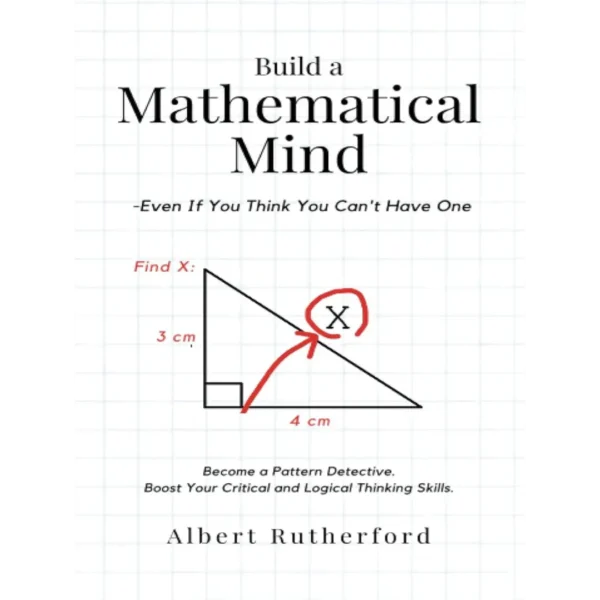
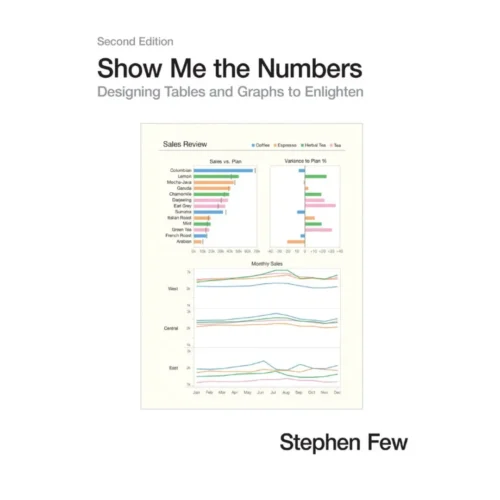
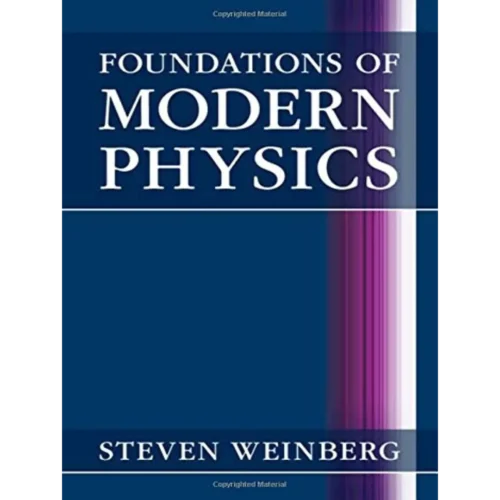
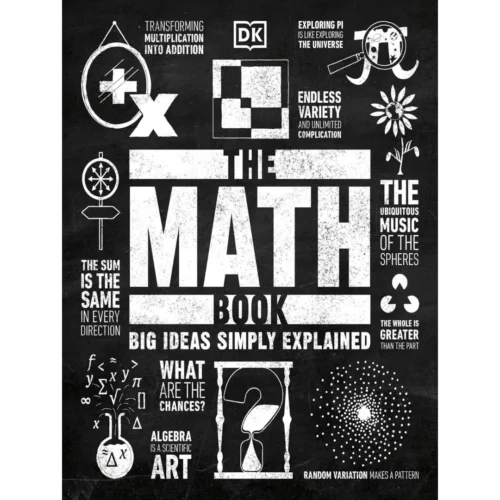
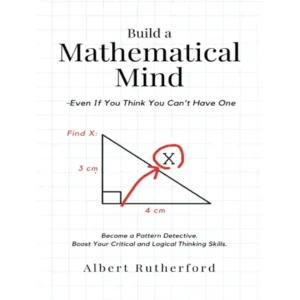
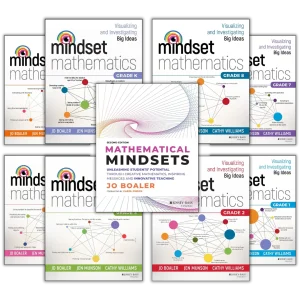
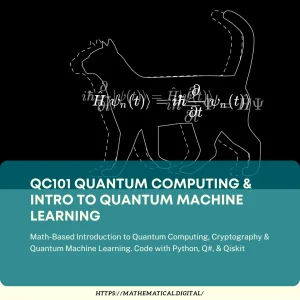
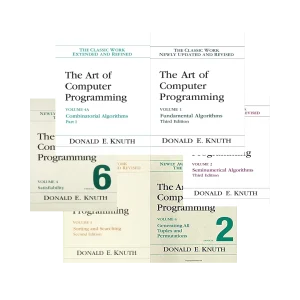
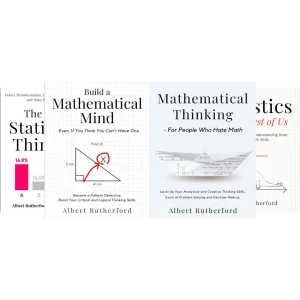
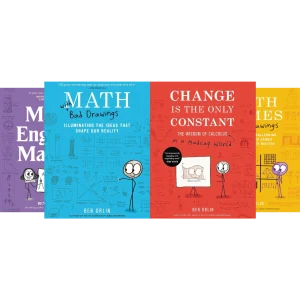
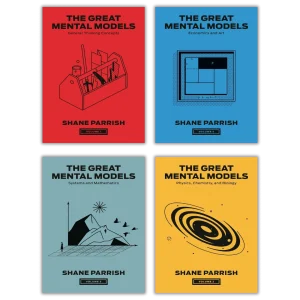
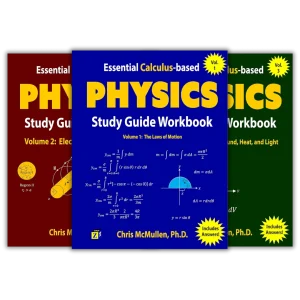
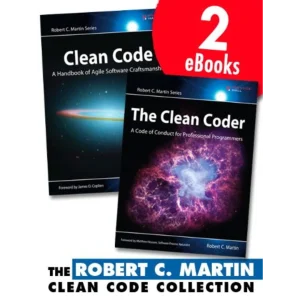
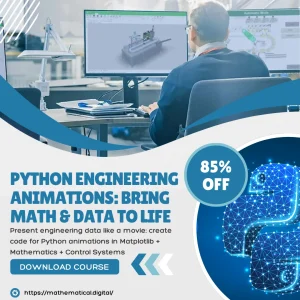
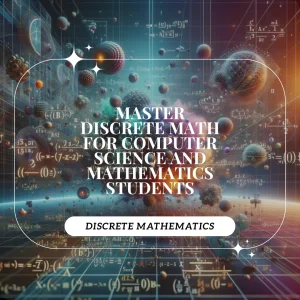
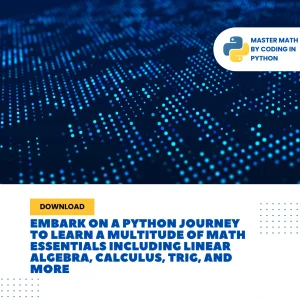
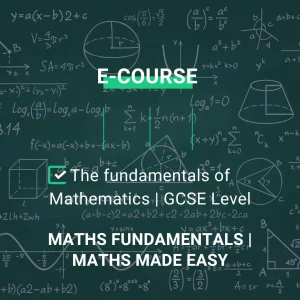
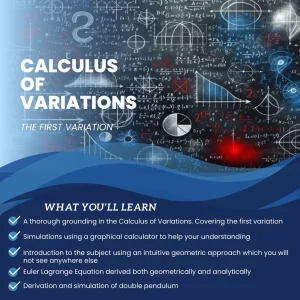
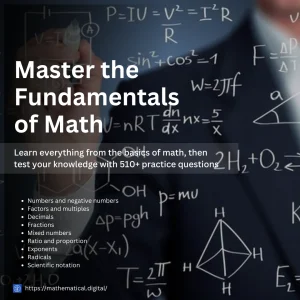
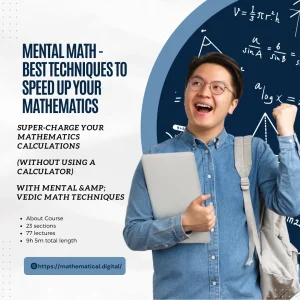
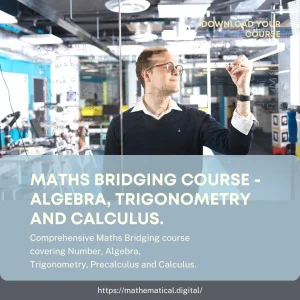
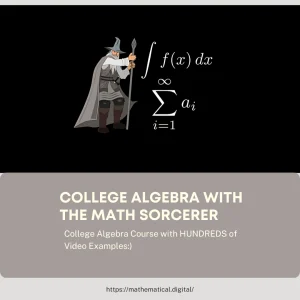
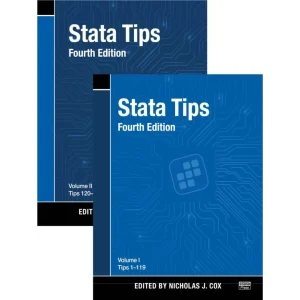
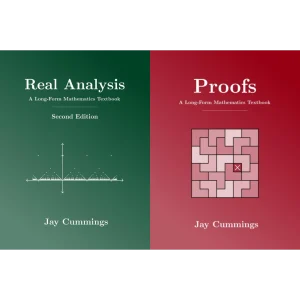
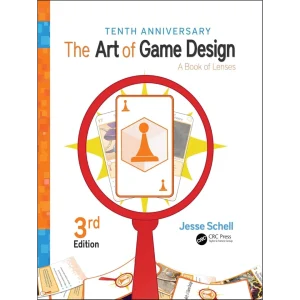
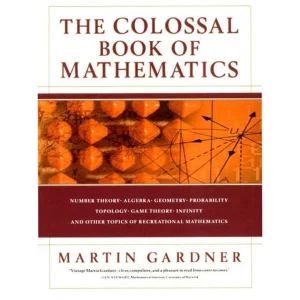
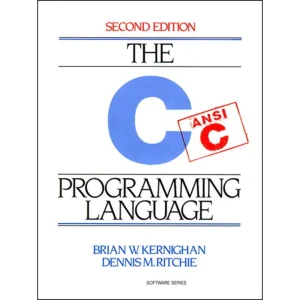
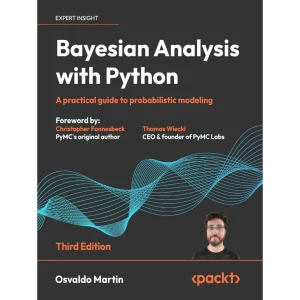
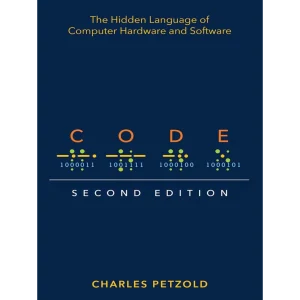
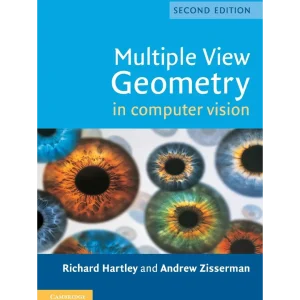
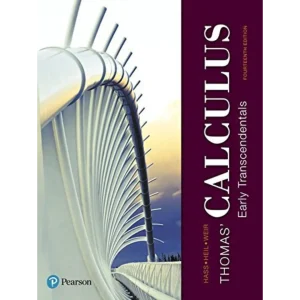
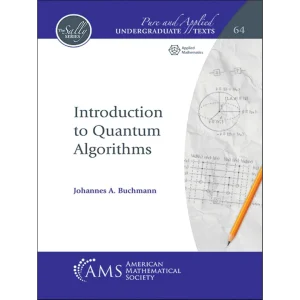
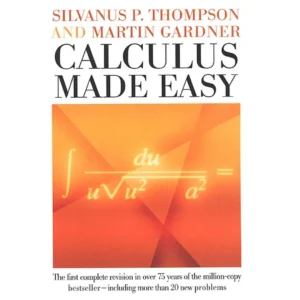
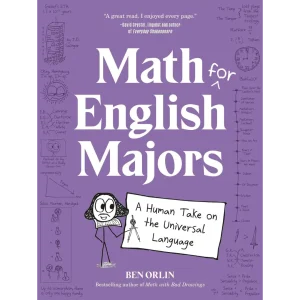
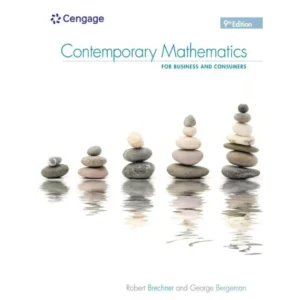
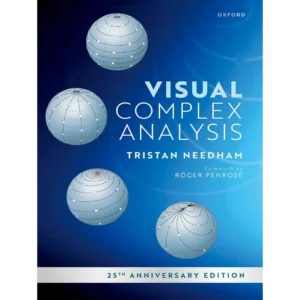
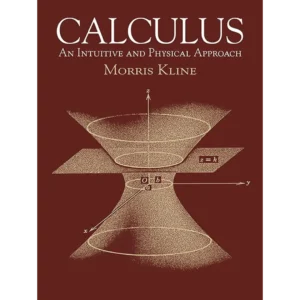
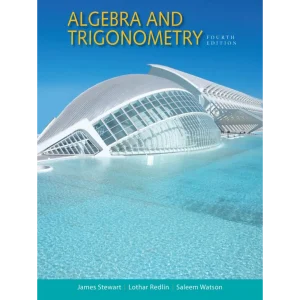
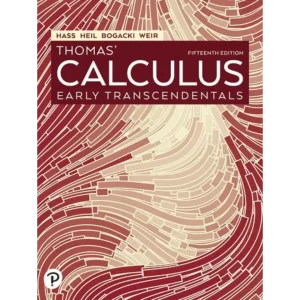
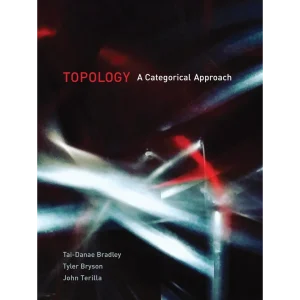
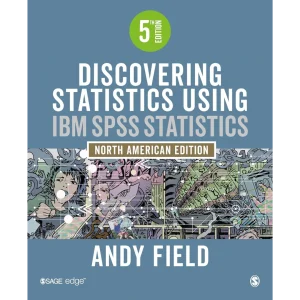
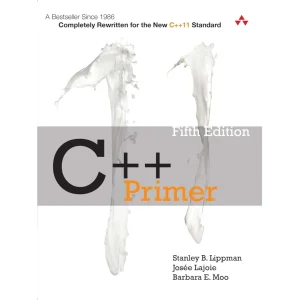
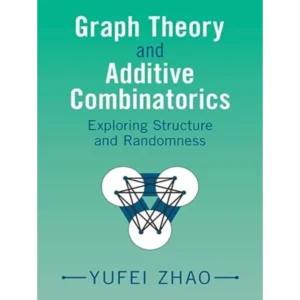
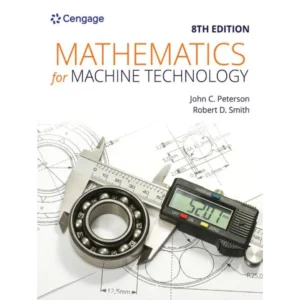
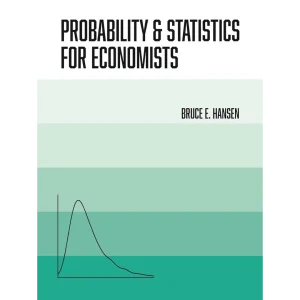
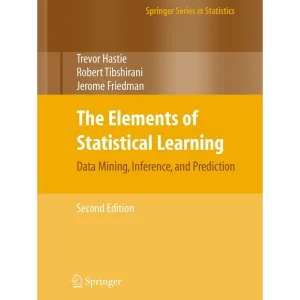
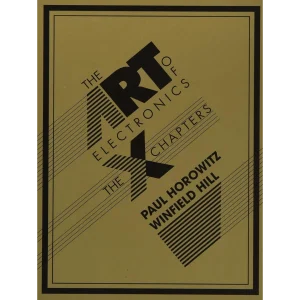
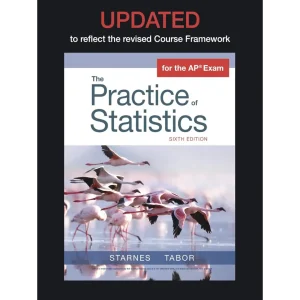
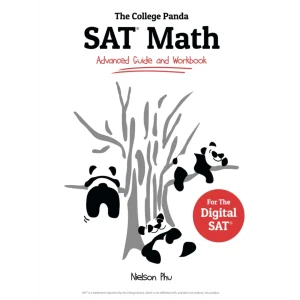
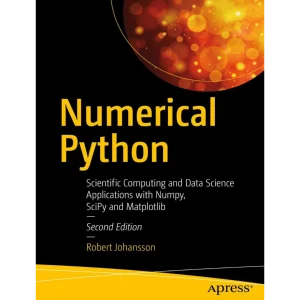
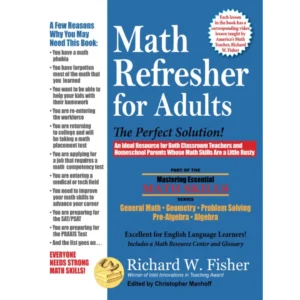
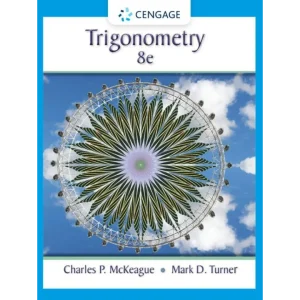
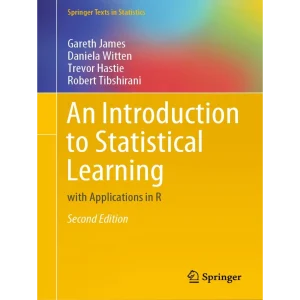

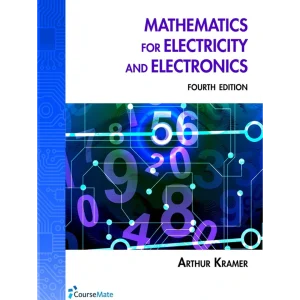
Rachel Watson –
Math is not just numbers and geometry and this book proves it very elegantly. The author talks about multiple life areas where mathematical thinking is involved without the numbers. He separates each skill he talks about in different chapters. The reading experience is engaging, easy-to-follow, and most importantly, educational.
Taylor –
Many people have a complicated relationship with math. I think that’s mostly because of bad teachers… as this book points it out, there are so many life areas where mathematical logic is used that have nothing to do with the numbers. Granted, one has to understand the basic principles of arithmetics – but basic basic, like how does addition or subtraction work. And you don’t have to calculate in your head how much 14856+24321 is – although you can, and I learned in this book how. Point being, there is more to math than equations and geometry calculations. Really liked the chapters on tinkering and guessing. Good read overall. Would recommend it to everyone who likes to learn new things and train their minds in a chill way.
M. Piasecki –
This book is a must read for anyone who has ever struggled with math or claimed they hated it. The title says it all…”Building a Mathematical Mind-Even If You Think You Can’t Have One…” The book holds true to its promise. I love how the author explains how divergent thinking is critical in today’s world. Not only do different points of view and methods of processing mathematical problems in a practical way cater to a world of diverse people, but it is important that we practice those unique and diverse ways of thinking. That is one of the things I learned reading this book. It has helped me understand myself and mathematics in a more practical sense. I highly recommend!
JK –
I always loved math but I feel I got a little rusty over the years. This book was a great manual for remembering mathematical concepts that are not really calculation-related. It’s structured around a “think outside the box” theme, discussing subjects as tinkering, inventing, pattern detection, guessing (probabilities) and other interesting, useful problems.
Faizan Aziz –
Good perspective on critical and logical thinking
E & J –
I really enjoyed this book though.
EagleRay –
“Build a Mathematical Mind – Even If You Think You Can’t Have One” explores mathematics using logic, along with abstract and divergent thinking. The abstract idea of algorithms means nothing more than using connected steps to achieve a reliable objective—making a sandwich was a practical example. Habit-Stacking is another way we use math to make our lives easier—our morning routine is an example. We all use math a lot more often and in many more ways than we realize.
James Campion Conway –
I was not a good student in math. I just didn’t care. However this author truly loves his subject and it is infectious. Recommended.
Augustus –
I really love the way the topics were Presented. It was easy to follow and understand. I know I have a new appreciation For how important mathematics is In our daily lives. I highly recommend it. Thanks a lot.
Chuck L –
Rutherford does an admirable job of telling us how mathematicians think about the world, but it ended too quickly and didn’t really tell us how to do math. Perhaps his plan was to leave us wanting more and to persuade us to buy another of his books on a similar topic. If that was his goal, he really does think like a mathematician.
Callbook –
The trick with math in is to SEE/detect those hidden relationships between objects/ideas/entities….
Brooke Shamblin –
If you’re someone with a more creative-based mind, but have either family members or close friends with more mathematical minds, then this is a wonderful book to read! It may help in understanding their thought processes more and why they do what they do the way they do things.
Liam_Miller_0510 –
Since I was a child I have always been fascinated by everything related to numbers. I love reading all kinds of books about math. This book will definitely help you improve your everyday skills when it comes to mathematics.
W Boroughs –
This is a good book that prods you to seek more. The book provided what it advertised, and it leaves you eager to dig a little deeper. Some of the shortcuts or examples of mind tricks (like for estimation) were interesting and practical. Very good for someone who is resistant to math!
Tyler Schaefer –
So often I hear “I hate math” or “I’m no good at math” and I truly believe anyone could be good at math if they approach it with the correct mindset. This book helps build that mindset.
frank –
I do not have the most mathematically inclined brain, but this book definitely helped boost my confidence in math. I really liked the explanation of estimation and guessing. It gave me a glimpse of how more technical minds think and helped me understand math a bit more. Overall a great read.
James –
I never liked math. It was never easy for me to learn, but apparently I’m not the only one. In Albert Rutherford’s book he mentions, “Ask any adult how they feel about math, and, aside from a few math enthusiasts, you’ll get a lot of lukewarm responses. People may say, “Ugh, I hated math,” or “I was never good at math!” That’s definitely me. Buy I did find the book useful, however, I wish he’d provided more tips.
Avid reader for life –
But this book shows you how to employ very simple tricks and techniques to greatly sharpen your skills in math. Whether for school or work, everyone can find a way to employ these methods to make for a better path against math issues. 5 stars!
Mike watkins Jr. –
This is a great book to read alongside “Making Numbers Count: The Art and Science of Communicating Numbers”.
What i love about this book is that it brings out that math involves asking “what if” and experimenting with those “what ifs”. I don’t know about you but math was presented to me in school as a finite system with only one answer/approach.
The solution is for schools to create an environment that is conducive to divergent thinking, or as Sir Kem puts it, “the ability to see lots of possible answers to a question, lots of possible ways of interpreting a question”. In other words, the author argues that problem-solving skills should be emphasized in math the way they are in other liberal disciplines and he presents various methods that teach you how to do this throughout the book.
These methods consist of the following:
1. Develop a mathematical habit
2. Become a better pattern detective
3. Use probability and experimentation
4. Describe and speak in the language of math.
5. Tinker
6. Invent
7. VIsualize
8. Guess
The author presents these methods in layman’s terms and even presents simple exercises you can do to start applying them.
Further, the author brings out how the creative process used to process music/art etc. is the same process used to process mathematics. In fact, some mathematicians have claimed that their critical discoveries came to them while sleeping (similar to a lot of brilliant musicians).
In other words, everyone has the ability to learn and process mathematics, there isn’t some unique aspect/attribute that you need to understand math.
But ye I would recommend this book to anybody. IT breaks down the flaws in the current American mathematical education system, how to address these flaws, and how you can embrace/lov
MSN –
The author does a great job explaining why so many people, especially in the US and English speakers, have negative early experiences with math. Language plays an important role in the early learning of math and young English-speaking students are at a disadvantage just learning to count to twenty. He gives several references for further discovery.
This book would be very good for math teachers or for dedicated parents looking to help their kids make sense of it.
Reza K Ghazi –
The book tries to teach you how to use math and how to enjoy the benefit of math in life.
Matias –
This book is a great primer/reminder of basic math. But not only that. It also explores ways of thinking like a mathematician- things one didn’t necessarily learn in school but are more useful to everyday life than knowing the Pythagorean theorem. I liked the author’s structuring and found his writing witty and enjoyable. It’s odd to say that a book about math was a page turner, yet I must say it.
Jacob Alinsky –
Wish I had this in school. A ton of stuff packed into one book!
Matthew M –
This book was helpful in building my math skills. It gave me a new perspective and confidence in my math skills.
Gregory P. –
This was a quick read – but in a good way. Very well written and organized, no fluff, to the point – teaching you what it promises, how to think mathematically without using too many numbers. It’s a book on logic and rational thinking for people who want to take these skills to the next level.
Vijay Kumar –
The author showcases how math skills can be used to sharpen everyday skills like problem-solving, communication, and estimation. What’s unique about this book is that it helps readers become proficient mathematicians without relying on numbers. The author breaks down the language of mathematics and shows how it is present in almost every aspect of our lives. The book provides logical explanations that are easy to understand, making it a valuable resource for anyone looking to improve their math skills.
Katelin W. –
Thoroughly enjoyed this one. It’s right up my alley and is super interesting and thought-provoking.
Diana Kimak –
Great book! It was interesting and very informative!
Amber Lopez –
Loved this brief but information packed book. Gave me the confidence to see myself as a math person. Thank you for the points to ponder.
Jakk Straw –
If you’re expecting a 1+1=2 book then you may be disappointed. If you can’t look outside of your rigid, dogmatic brain and can’t see “math” from another perspective, you’ll feel affronted by the author’s logical viewpoint and post a review decrying “wokeness.” But if you’re looking to expand you’re thinking and perspective on the world, this book is for you!
William McGinnis –
For the reader ready to dedicate a fair amount of time, focus and do the work, this book can increase critical and logical thinking skills. My slow brain found it heavy going, but for those with more focus and patience this could be valuable.
Cjreau8 –
very insightful. short but gets to the point.
Michael McFarren –
Albert does an amazing job of simplifying and providing a thoughtful presentation of math. His insight in how math plays an important role in or everyday life is amazing.
Math on Customer –
I read this book through in almost one setting. It provides reason for and clarity about the need for math and how it really is for all of us. Dispelled the fear that being competent in math is not within my grasp. I can do it. A real treasure! Thank you.
Phil –
Since I happen to have adult education students enrolled in my alternative high school diploma classes I knew this book would better help me to assist my students with their math challenges. For sure this math motivating book was a psychological boost.
J. Allen Davis III –
This book was really great. I enjoyed looking at this topic in a different way.
Mitty –
Overall, I think “Build a Mathematical Mind” is a good book for building mathematical confidence and intuition. Also, the author makes a good case for why you should learn math and why everyone can be a “math person”. Generally speaking, the book could use some cleanup and better formatting (it feels independently published), but the content itself is good.
peter ferguson –
I enjoyed the contents, well articulated and well argued. However it left me wondering if it would appeal to people who weren’t interested in maths in the first place.
Winnetka –
A wonderful book by an excellent writer. Your ability to understand and work with numbers will be enhanced by reading it. On the same topic I strongly recommend Innumeracy by John Paulos. Numbers are wonderful.
Cliff Ashpaugh –
⭐⭐⭐⭐⭐
“Build a Mathematical Mind” is a game-changer! This book breaks down complex concepts into simple, engaging lessons. It’s a must-read for anyone looking to sharpen their critical thinking skills and embrace the joy of math. Highly recommended!